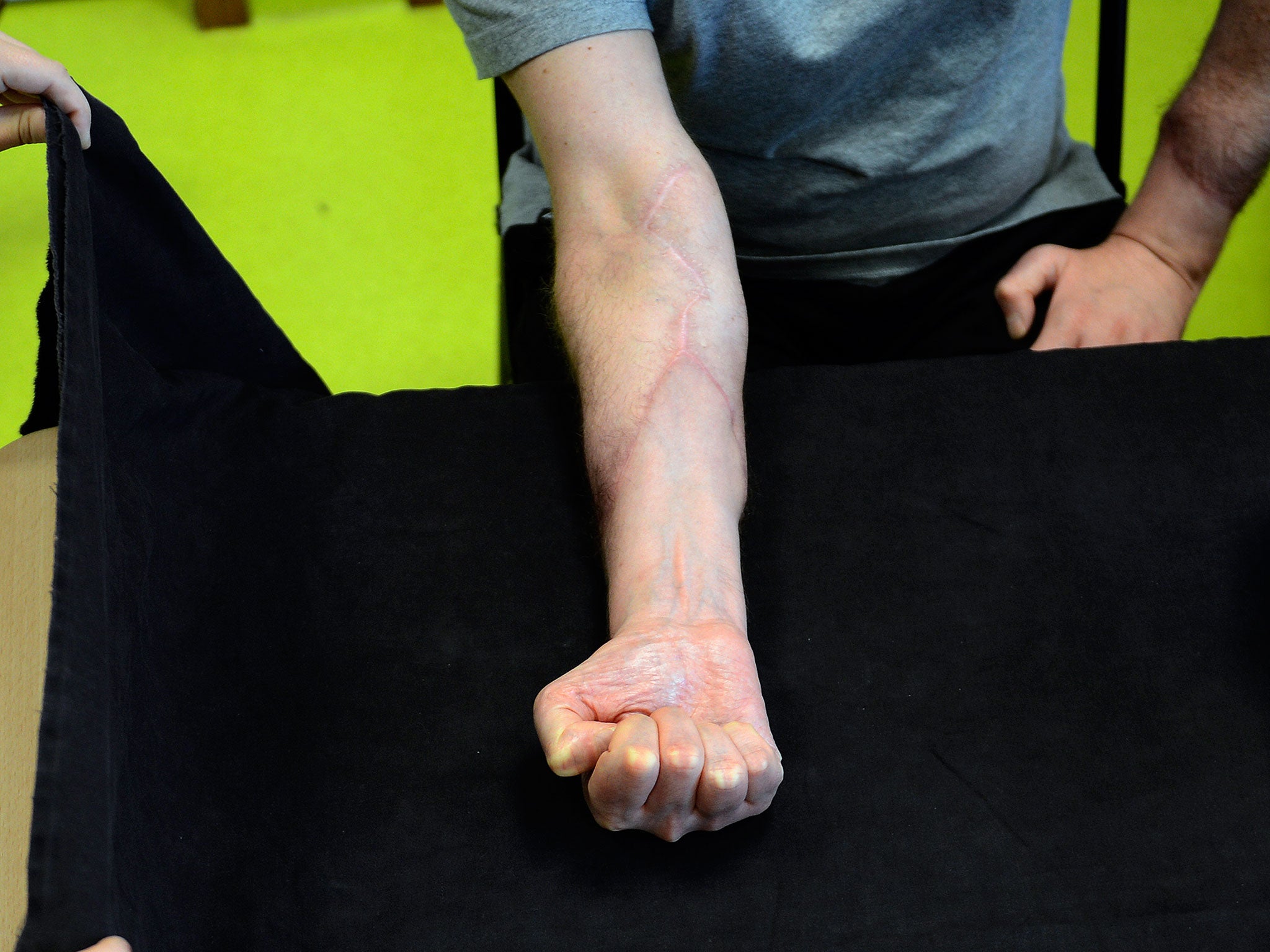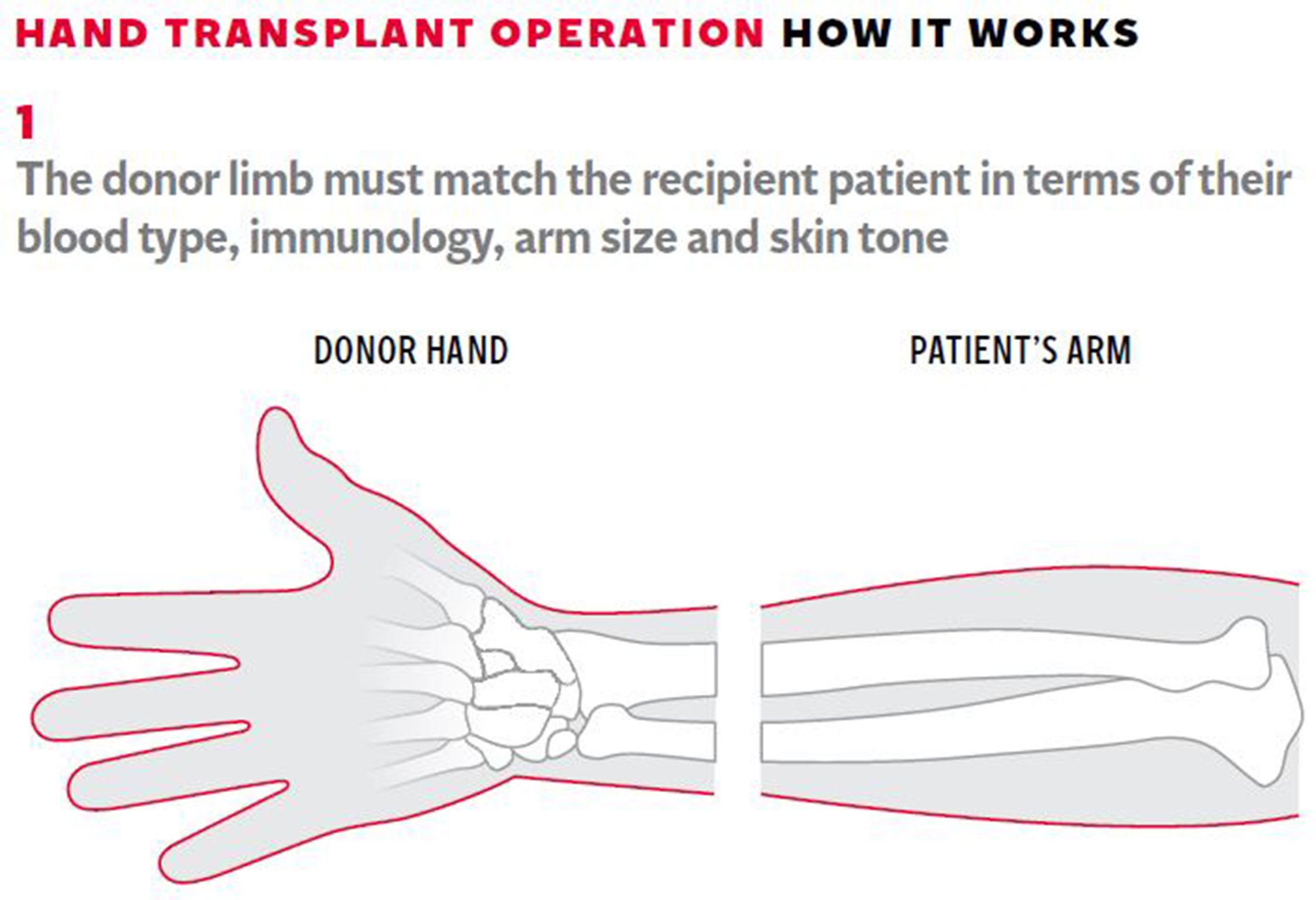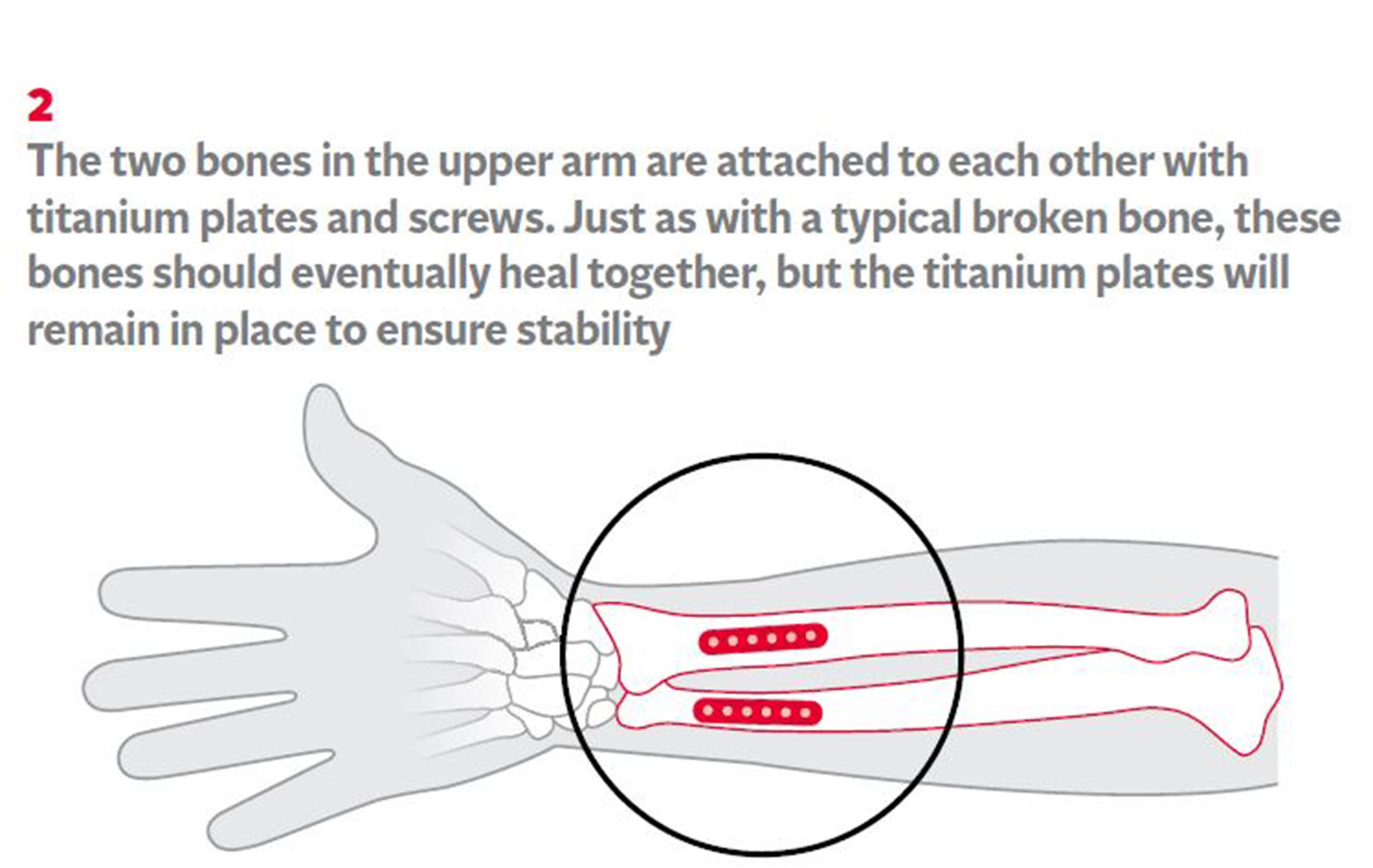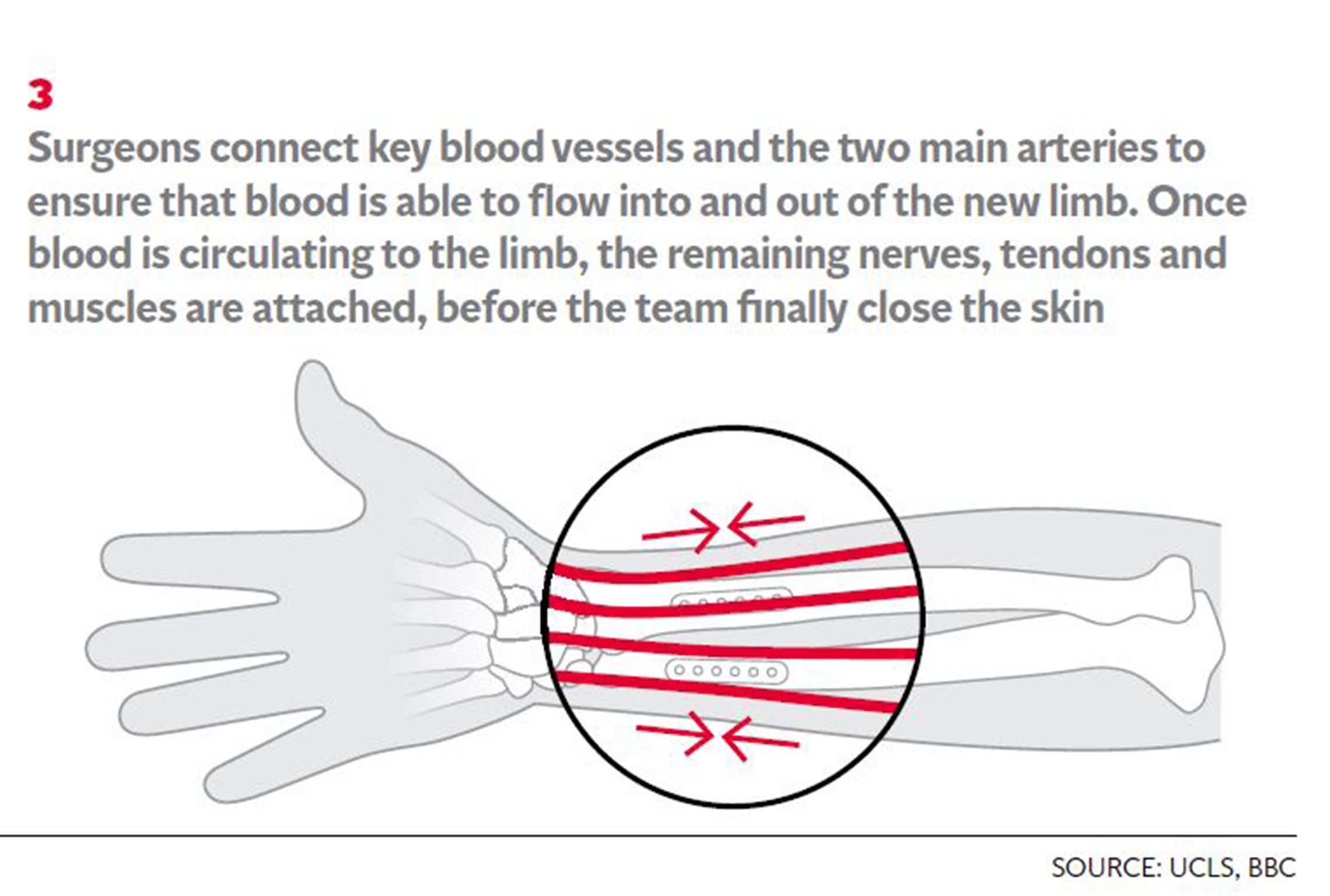NHS patients to receive first hand and arm transplants
Around 80 hand transplants have been performed worldwide on carefully selected patients and success rates are high

Your support helps us to tell the story
From reproductive rights to climate change to Big Tech, The Independent is on the ground when the story is developing. Whether it's investigating the financials of Elon Musk's pro-Trump PAC or producing our latest documentary, 'The A Word', which shines a light on the American women fighting for reproductive rights, we know how important it is to parse out the facts from the messaging.
At such a critical moment in US history, we need reporters on the ground. Your donation allows us to keep sending journalists to speak to both sides of the story.
The Independent is trusted by Americans across the entire political spectrum. And unlike many other quality news outlets, we choose not to lock Americans out of our reporting and analysis with paywalls. We believe quality journalism should be available to everyone, paid for by those who can afford it.
Your support makes all the difference.NHS patients in England are to become among the first in the world to undergo publicly-funded hand and upper arm transplants.
Medics at the Leeds Teaching Hospitals NHS Trust have been given the go-ahead by NHS England to start assessing patients and performing the highly-complex procedures from April.
The pioneering surgery will help a small number of patients who have lost a hand in an accident or through infection.
Around 80 hand transplants have been performed worldwide and success rates are high, but patients have to be carefully selected and psychologically screened for the operation.
Those who undergo a successful operation will need life-long medication to stop their body from rejecting their new limb and will have to undergo daily physiotherapy.
The centre in Leeds is led by leading consultant plastic surgeon Professor Simon Kay, who successfully performed the UK’s first hand transplant in 2012. Patients will be accepted from across the country.
Professor Kay said: “The expert team here at Leeds is keen to now asses new patient referrals and benefit patients and their families.”
Medics say that, if transplanted successfully, the hand will eventually move with strength and dexterity and, unlike a prosthetic hand, will sense its surroundings, feel warm to touch and heal itself when injured.
They say people who have had a hand transplant also report a better quality of life and wellbeing, and the majority are eventually able to use their hand for daily activities following extensive physiotherapy. It is expected that two to four patients a year will undergo the surgery.
Over the next five years, Professor Kay and his team will work with hand and wrist consultant Mr Henk Giele at Oxford University Hospitals NHS Foundation Trust, which will undertake assessments and non-surgical follow up care. NHS Blood and Transplant will work to identify possible donors by looking at their blood group, skin tone and hand size.



The option to donate a limb is not recorded on the NHS Organ Donation Register, so specific permission will need to be sought from the families of potential donors.
Mark Cahill, a patient from West Yorkshire who underwent the first UK transplant, said his new hand has enabled him to tie his shoelaces and drive a car.
He said: “My experience as a patient and my quality of life since the hand transplant has been fantastic. It really has transformed my life.”
Dr Jonathan Fielden, NHS England’s director of specialised commissioning, said: “The NHS is leading the world in offering this cutting edge procedure, which has been shown to significantly improve the quality of life for patients who meet the strict criteria.
“We will be working closely with Professor Kay and his colleagues at Leeds, as well as NHS Blood and Transplant, to ensure that this highly innovative service for the NHS can get up and running as soon as possible.”
Join our commenting forum
Join thought-provoking conversations, follow other Independent readers and see their replies
Comments